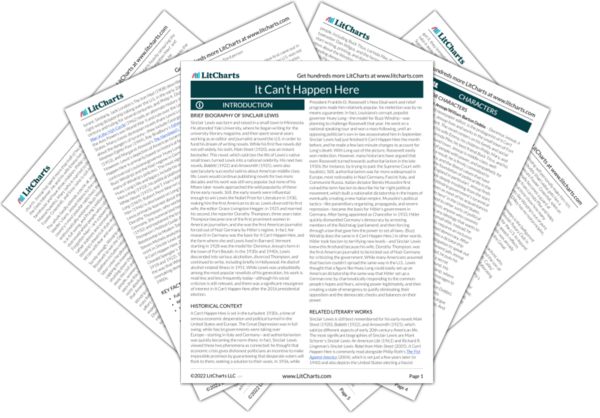Through Jessup’s speech, Lewis argues that the U.S. is just as prone to the kind of irrational, antidemocratic mass politics as Italy or Germany, even if the country’s people believe that it has special democratic values. The U.S. might not share other countries’ culture or political history, but fascists always try to glorify their own nation’s particular virtues, so American fascism will inevitably look different. Specifically, Lewis uses this conversation to warn that American fascists will justify setting up a dictatorship by talking about common American values like hard work, capitalism, and (most ironically of all) anti-authoritarianism.


